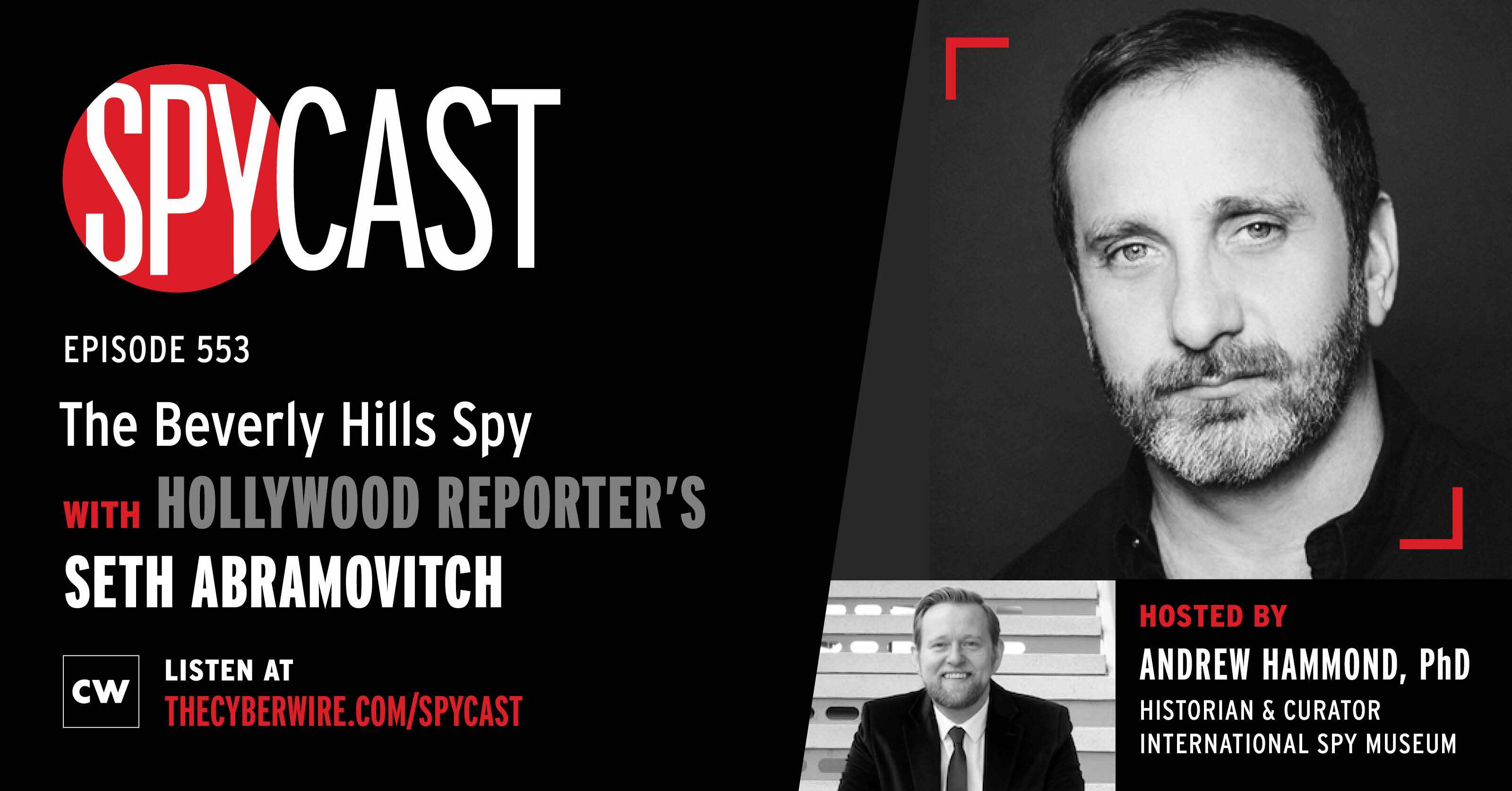
“The Beverly Hills Spy” – with The Hollywood Reporter’s Seth Abramovitch
Summary
Seth Abramovitch (Twitter; LinkedIn) joins Andrew (Twitter; LinkedIn) to discuss the British war-hero who spied on behalf of the Japanese during Hollywood’s Golden Age. This is a story-and-a-half, by jingo!
What You’ll Learn
Intelligence
- How a British war-hero became a spy for the other side
- Japanese espionage in Tinseltown
- How the story involves Boris Karloff, Charlie Chaplin and Yoko Ono’s father
- The spy ring’s activities before and after Pearl Harbor
Reflections
- Playing the game for yourself vs. for a country or a cause
- Hubris & Nemesis
And much, much more…
Episode Notes
Sqn. Ldr. Frederick Rutland, AM, DSC and Bar, was the first person to fly a seaplane from a ship in history. He was also the first man to spot the German fleet from his seaplane, thereby precipitating the largest naval battle of the First World War, the Battle of Jutland.
After leaving the military because of indiscretions with a fellow officer’s wife, he tries to live an ordinary vanilla life, but still craves his action-packed days of old…ultimately, he is approached by the Japanese to spy on their behalf, which leads him to relocate to LA during the Golden Age of Hollywood.
To discuss this doozy of a story, I am joined by Seth Abramovitch from The Hollywood Reporter – i.e., the definitive interpretive voice of the entertainment industry – where he has worked for ten years.
And…
There are some incredible Hollywood movies from the interwar period, capturing some of the tension and suspicion of the era, as well as the faint drumbeat of approaching war. Hitchcock alone had, The Man Who Knew Too Much (1934), The 39 Steps (1935), Sabotage (1936), and Foreign Correspondent (1940). Major stars of the era such as Marlene Dietrich, Great Garbo, and Madelaine Carroll helped solidify the spy genre with movies such as Dishonored (1931), Mata Hari (1931), and I Was a Spy (1933). Don’t forget Fritz Lang’s Spione (1928), which has been called a, “marvel of narrative economy in montage.”
Quote of the Week
"At the very bottom of the list, it would be any kind of allegiance to any flag, because he's quick to offer to turn on Japan when push comes to shove at the very end of the whole story. I don't think he was doing it for any kind of nationalism or political, viewpoint. I think if anything he was apolitical." – Seth Abramovitch.
Resources
Headline Resources
- “Beverley Hills Spy” Seth Abramovitch, The Hollywood Reporter (2022)
Andrew’s Recommendation
- Reel vs. Real CIA – The Americans, Argo, Black Panther, and the Good Shepherd
*SpyCasts*
- “Russia Upside Down” – with Creator of The Americans Joe Weisberg (2022)
- “The Courier” – the Director’s Take with Dominic Cooke (2021)
- “Hollywood Spies” – with Jonna Mendez (2020)
- “U.S. Naval Intelligence in WWII” – with Rear Admiral Donald Mac Showers
--------------------------------------------------------------------------------------------------------------
Beginner Resources
- Spy for Japan, T. Bradbeer, Historynet (2022) [webpage]
- The Pacific War, WELT (2021) [video]
- FBI Raid Japanese Spy Network in LA, Smithsonian Channel (2019) [video]
Books
- Intelligence & the War Against Japan, R. Aldrich (CUP, 2000)
- The Emperor’s Codes, M. Smith (Bantam, 2000)
Articles
- “Agent Shinkawa Revisited,” R. Drabkin & B. Hart, IJIC, 35/1 (2022)
- The 1924 Law That Slammed the Door on Immigrants, Smithsonian Magazine (2020)
- Washington Naval Conference, 1921-22, Historian, State Dept. (n.d.)
- Russo-Japanese War, 1904-5, Historian, State Dept. (n.d.)
Primary Sources
- “Security Service Files, Frederick Rutland” – National Archives (U.K.):
- 1924-1933
- 1933-1935
- 1935-1936
- 1935-1937
- 1937-1941
- 1941
- 1941-1942
- 1942
- 1942-1943
- 1943-1944
*Wildcard Resource*
- Reel-vs-Reel
- How Hollywood compares to the real CIA
- The Americans
- Argo
- Black Panther
- The Good Shepherd


